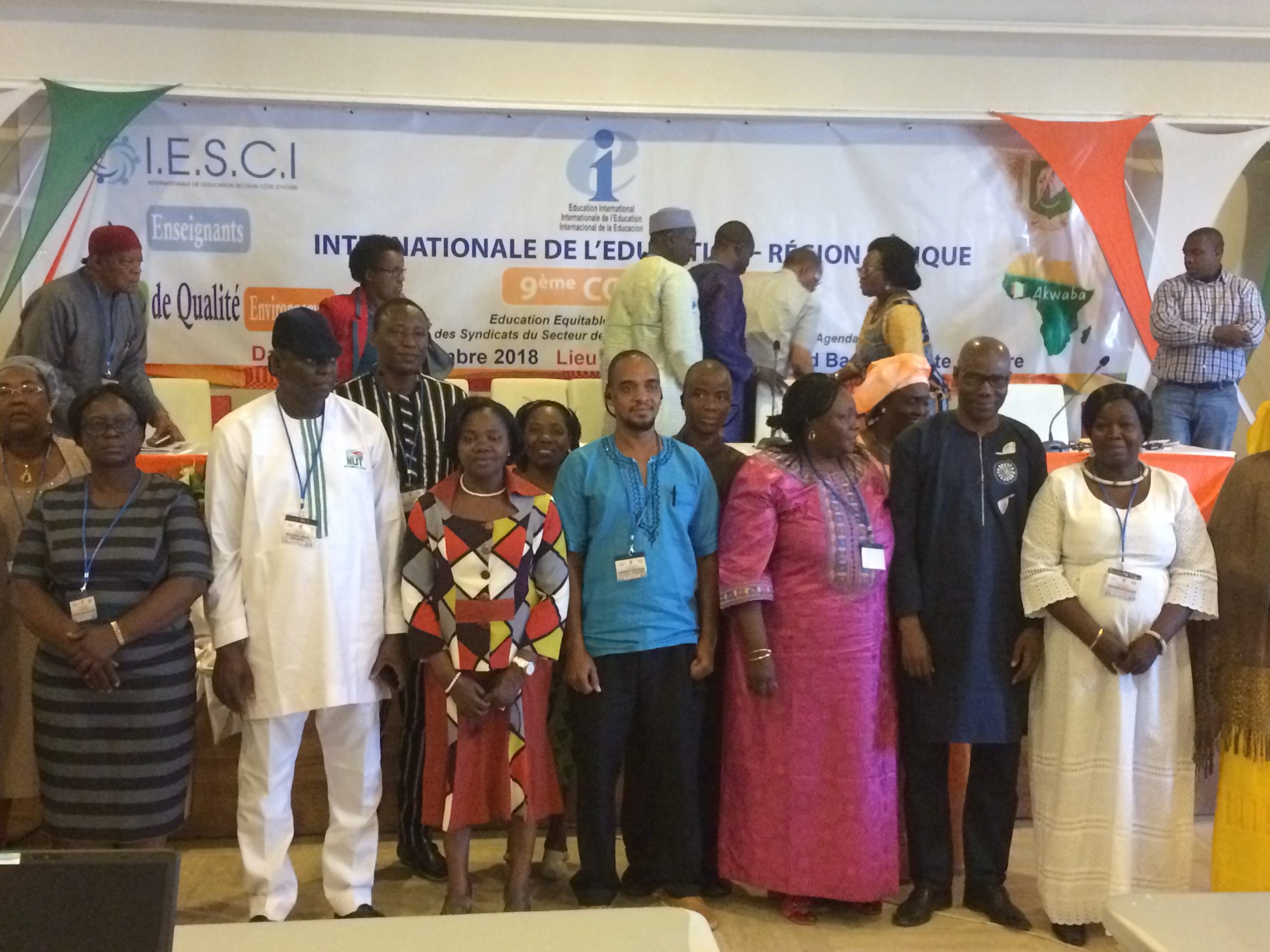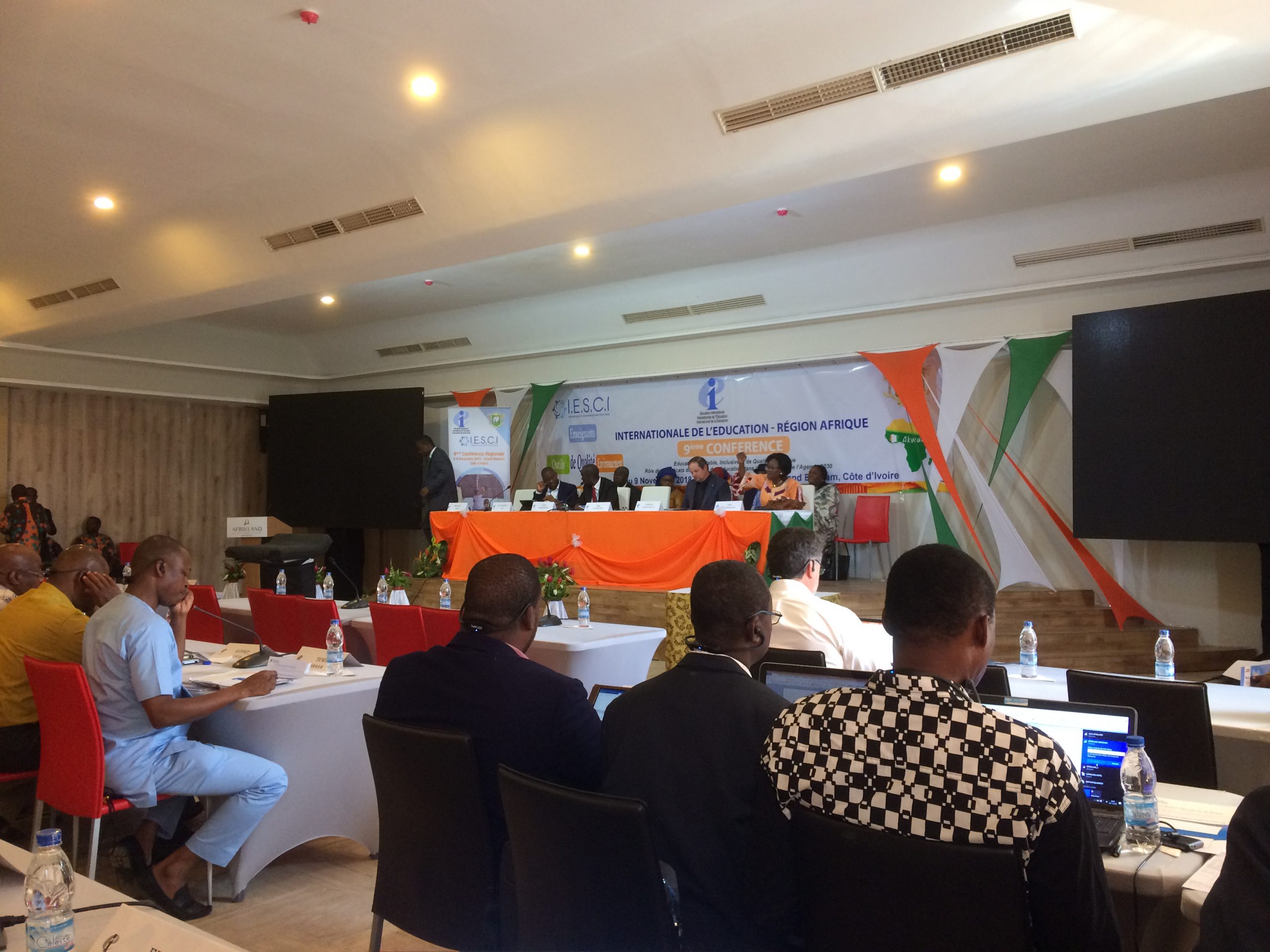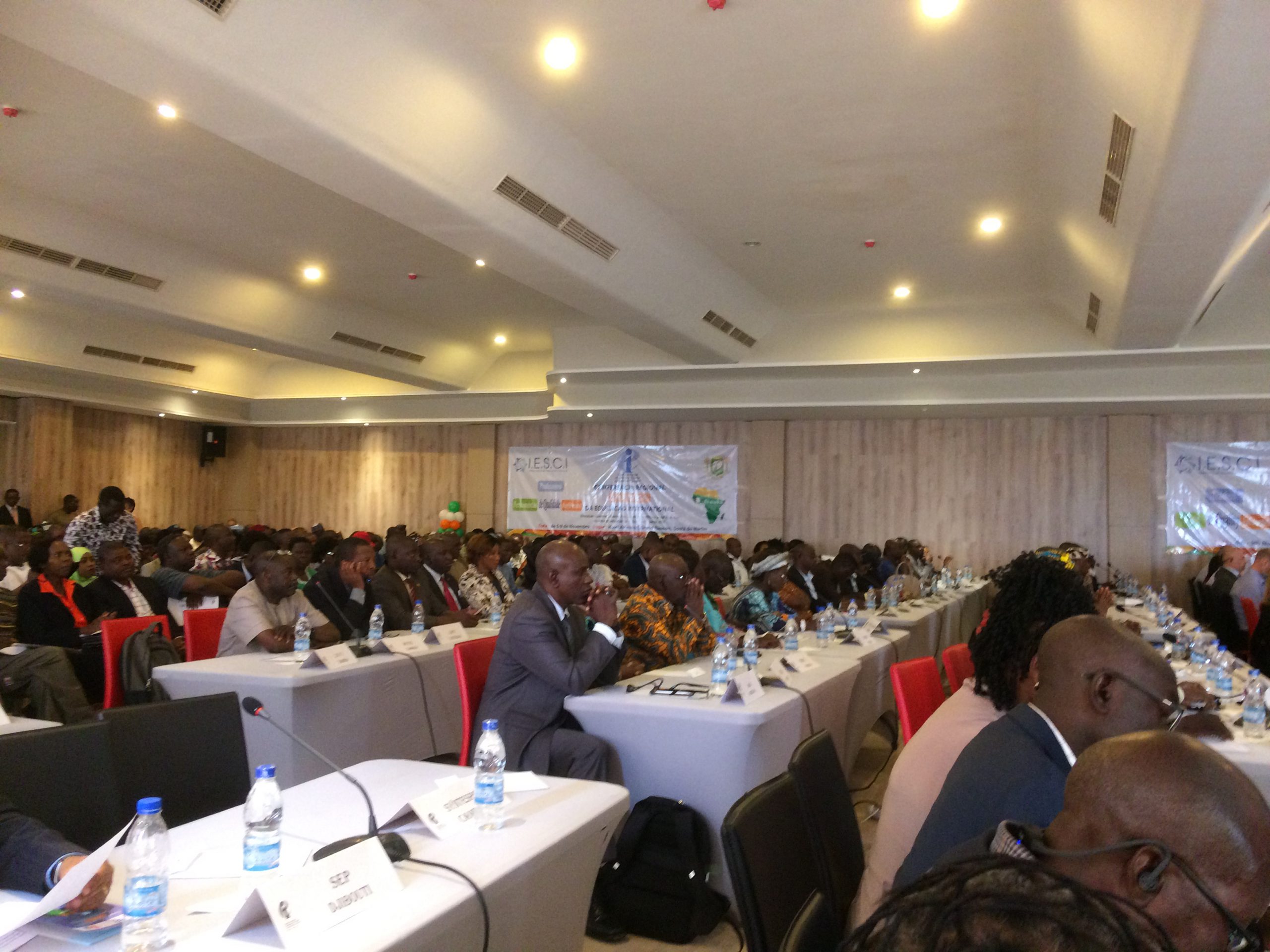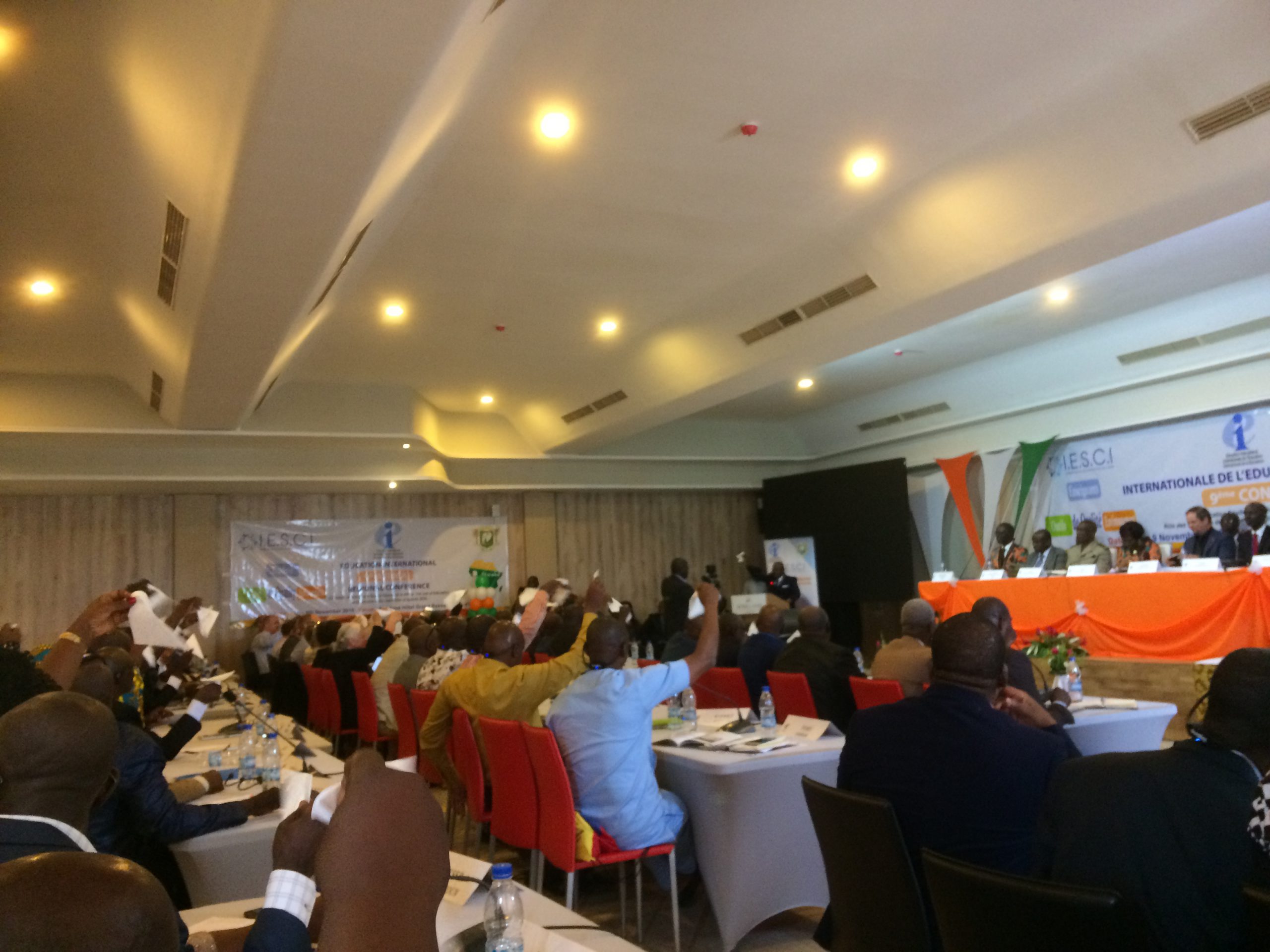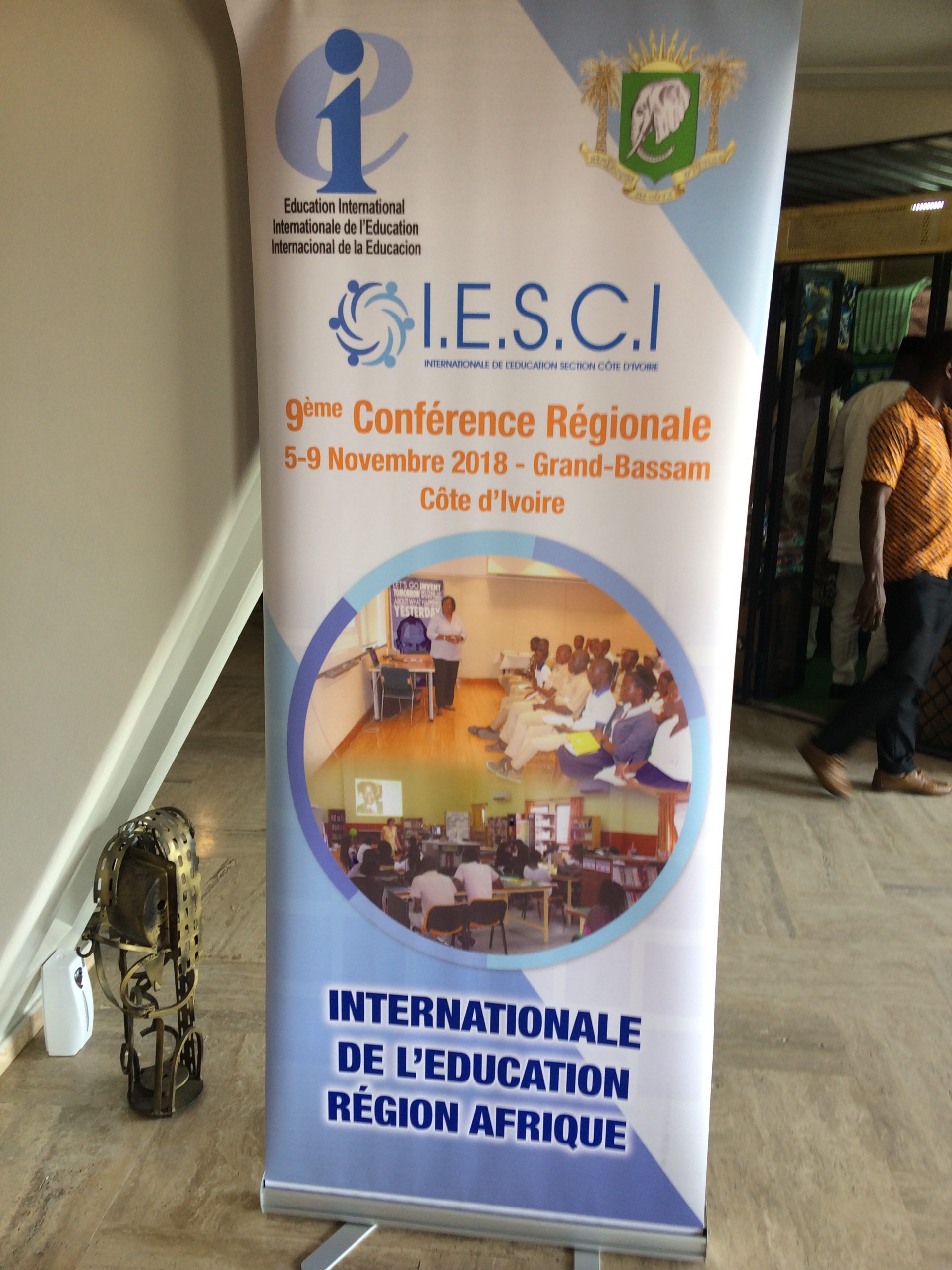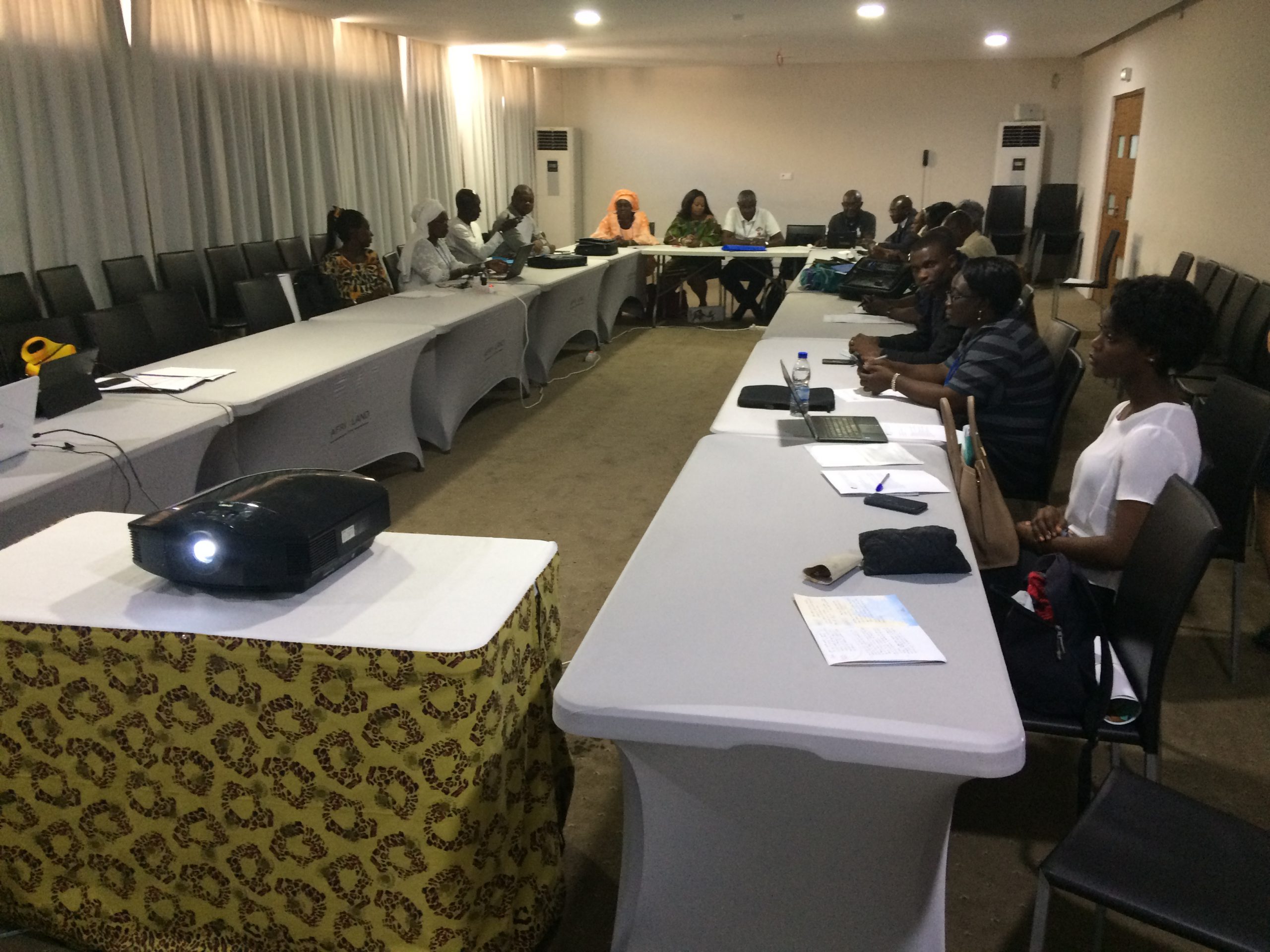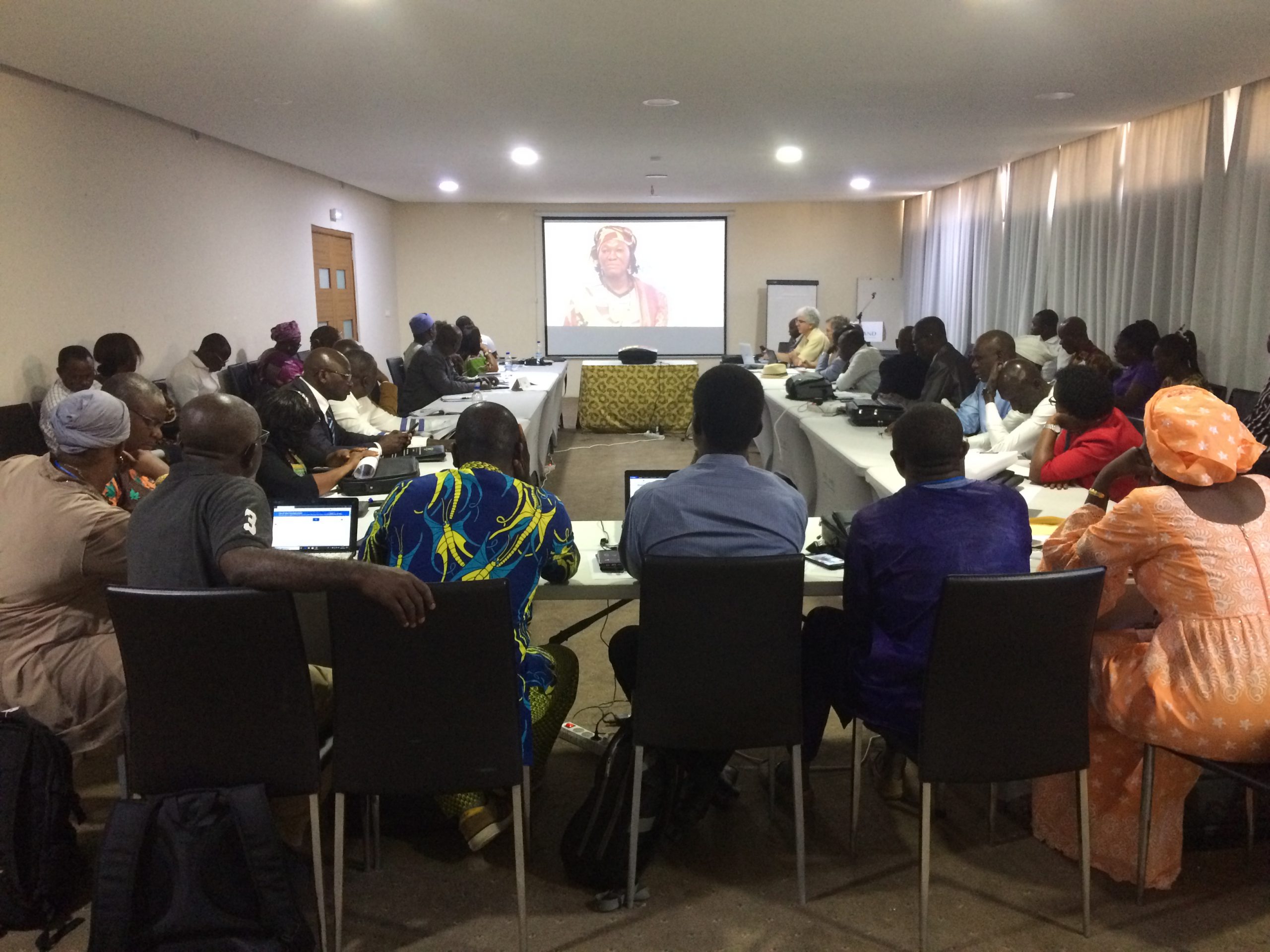No less than 450 representatives attended Education International’s Africa regional conference in Grand-Bassam in Ivory Coast. This high point for African trade unionism was focused on: Fair, inclusive and high-quality education, the role of education-sector unions in implementing the 2030 Agenda.
In the face of the threats hanging over the education sector (deprofessionalisation, deterioration in teaching and learning conditions, insecurity in institutions, staff shortages, challenging of academic freedoms, political pressures etc.), David Edwards, secretary general of Education International, emphasised the opportunities to be seized and the place of education sector workers:
“Quality education will not be achieved without teachers who are well trained, well equipped, well recognised and well represented”. David has called upon the unions to mobilise to help build quality education systems most notably by engaging governments and international organisations: “Do not underestimate collective strength. Mobilise, recruit, strive towards unity to tackle the challenges of the 2030 agenda”.
The subject of the inclusion of women and young people in the trade union movement was discussed extensively and cemented by the adoption of two declarations calling for education unions to improve the representation of women and young people but above all to create space in bodies for effective participation in trade union life.
The Education and Solidarity Network had the opportunity to present its activities in plenary session. This presentation sparked considerable interest among participants and is heralding many solid collaborations on the issues of healthcare and the social protection of education communities in Africa.
Many other subjects were also discussed by speakers including education in crisis, research, gender-based violence and early childhood to name but a few.
At the end of the conference, the delegates elected Christian Addai-Poku of Ghana as president of the IERAF (Education International for the Africa Region) while Mariama Chipkaou, of Niger was elected Vice-president.
The Comité Syndical Francophone pour l’Education et la Formation (CSFEF) also held a meeting during which the ESN/CSFEF survey on the health of education-sector professionals in French speaking countries was presented. Outside the conferences, the ESN had a number of exchanges with some of its members and partners, in particular Fekrimpama (Madagascar), the SYNAFEN (Niger), FENECO (RDC), the UNATU (Uganda), the CSQ (Quebec), the SNEA-B (Burkina) and the GTU (Gambia).
